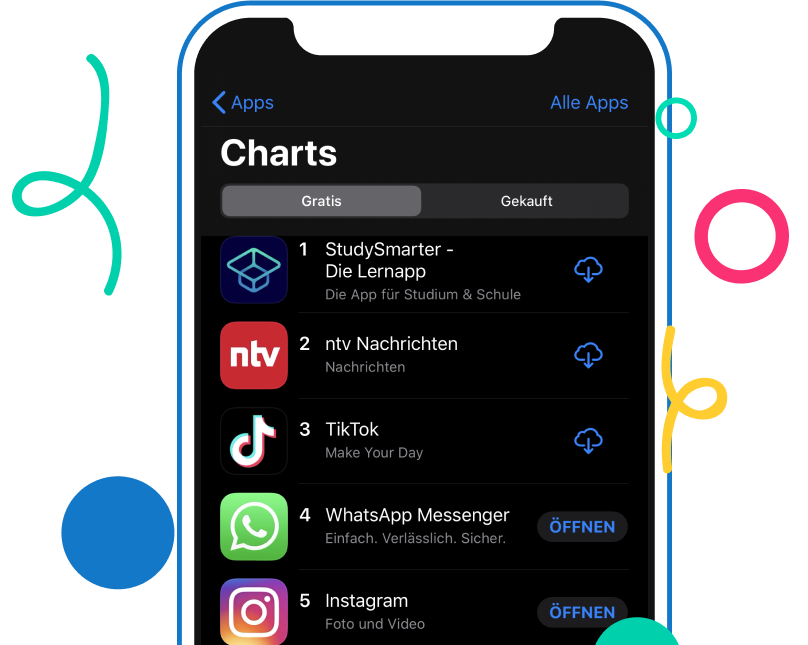The crucial night before an exam comes with Dos and Don’ts. So, before we move on to the actions you should take, let’s first have a look at the things that you should avoid to set yourself up for success.
What Should You Avoid the Night Before an Exam?
Since you want to feel at your best the following day, there are some things that you should avoid to be at your peak:
Caffeine Intake at Night
Caffeine (usually in the form of coffee) taken 6 hours before sleeping seriously impacts the quality of your sleep, as shown by the study conducted in 2013. So to get the best night’s rest possible, you shouldn’t drink coffee for a minimum of 6 hours before bed.
Excessive Fluid Intake
While you want to be hydrated the day before your exam (and on the exam day), excessive fluid intake before bed can wake you up during the night for a bathroom break, which is not ideal when you intend to rest well before your exam.
Cramming
According to a survey conducted at Indiana University of Pennsylvania in 2014, 99% of students have crammed for a test before, and 26% are cramming for all tests they are taking. And chances are, you may be thinking of joining the crowd.
Well, perhaps you should think again. Research accepted in 2005 involving 254 separate studies and 14811 participants has shown a significant difference in correct memorization between spaced and massed learning (the equivalent of cramming), with spaced learning having much higher statistics.
Pulling an all-nighter rather than sleeping
Similar to cramming, most students think that studying all night rather than sleeping will help them more in the upcoming test the next day.
Ironically, it is also not true. According to the study done on the first-year students of the Universidad de la República, Montevideo, Uruguay, sacrificing your sleep for studying is not the best idea since students who slept more hours the night before tend to do better on the test the next day.
Not eating dinner
We all know that the lack of nutritious food affects your cognitive abilities in a harmful way. So skipping dinner the night before a test is one of the crucial mistakes you should avoid.
Overeating
You have probably experienced feeling tired after eating too much or not feeling rested the morning after a huge nighttime snack.
Turns out it is not only you! A study conducted in 2020 amongst University Students has shown that eating within three hours of going to bed increases the likelihood of nocturnal waking by 40%, which is a significant disturbance in sleep quality and the energy levels you’ll have the next day.
Overthinking
One of the most obvious reasons for not being able to sleep the night before a test is overthinking. Instead of getting lost in your head, pause to think about your accomplishments and memories; even if you fail the test, it will not define you; take a deep breath, relax, and remember that the exam is only a small part of your path.
Top 8 Tips for the Night Before an Exam
Now that you have learned everything you should avoid, let’s focus on what you should be doing the night before your exam.
Solve exercise questions
While revising or studying on the night before the exam day can be harmful and cause you to confuse the answers, solving exercises and/or flashcards can do just the opposite.
Get your momentum for completing the questions from the night before to be at your best during the exam.
Stay Hydrated
One of the most important points to touch on while talking about cognitive performance is hydration. This is because even a 2% dehydration reduces performance in attention-demanding activities.
So do not forget to drink the daily amount required for adults. Though the amounts can vary depending on weight, height, and physical activity, the generally advised amounts are:
- 3.7 Liters a day for men
- 2.7 Liters a day for women
But keep in mind that you shouldn’t take on a challenge you’ve never done before on the night before your exam. Keep yourself hydrated at your own pace, and don’t drink too much before bed to ensure you don’t wake up in the middle of the night.
Stick to your routine, nothing new!
You should be comfortable and relaxed before your exam. So instead of trying all the new things in your spare time, stick to your own routine and find calm and peace in it, which will be helpful when it is time for bed.
Meditate on Positive Outcomes
If you are having a hard time calming yourself down or having stable breathing, try meditating on the positive outcomes that can (and most likely will) happen after your exam.
Close your eyes, get in a comfortable position, and only think about the good that can happen after you get out of your exam. Recall your experiences and remember there is always more to life than just tomorrow’s problems.

Eat right and eat light
For motivation and mood purposes, cook or order something you enjoy. But make sure to keep it light since you don’t want to feel tired right after you eat, which can cause you to feel the same right after you wake up the next day.
Prepare all materials for tomorrow
You don’t want to keep thinking about everything you’ll need to bring to the exam tomorrow, you don’t want to be late looking for them in the morning, and you definitely don’t want to show up to your exam with important materials missing.
Because all of these can cause anxiety and work against you during the exam. So do yourself a favour, and prepare everything you’ll need the night before. These may include:
- Pen/Pencil
- Eraser
- Ruler/Geometry Set
- Calculator
- Bottle of Water
Get enough sleep
All the points we have discussed are connected to getting enough sleep. Following all the tips, you shouldn’t have any problem falling asleep.

But make sure to go to bed at a time that allows you to have 7-8 hours of sleep (depending on how much you sleep regularly) to make sure you get the needed sleep hours in.
Ensure you wake up in the best way tomorrow
A typical sleep cycle is divided into two stages: REM sleep and NREM sleep. Your body switches between these two stages approximately every 90 minutes.
And the best time to wake up to feel the most energetic is at the end of a cycle. So if you’d like to wake up without a struggle, make sure you set an alarm that will wake you after X number of multiples of 90 minutes. (e.g. 7.5 (5×90 mins) hours or 9 (6×90 mins) hours after you went to sleep)
And more importantly, you want to make sure you wake up, so either try setting two alarms or asking a friend or a family member to give you a call the following morning to make sure you get up.













